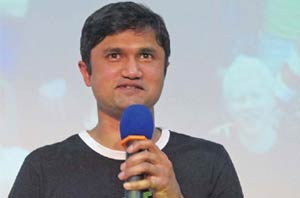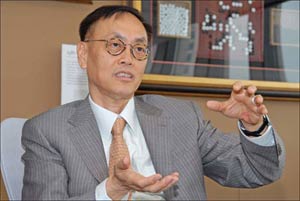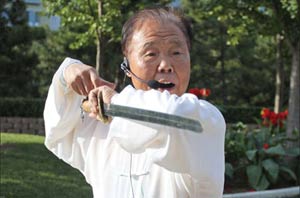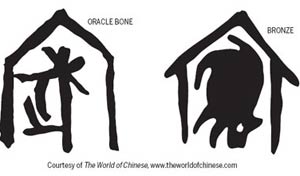Would the Steve Jobs approach work in China
Updated: 2011-10-14 08:45
By Mike Bastin (China Daily)
|
|||||||||

The passing away of Steve Jobs recently has led to the sort of media attention usually reserved for entertainment superstars or heads of state. Yet no one can deny the attention and adulation is unwarranted. Jobs' was the first, and only, technology superstar.
So, would Jobs' approach lead to such fantastic achievements inside a Chinese business?
To find answers to this question it behoves us to examine Jobs' distinctive approach to business.
Challenging the status quo:
Jobs appears to have thrived on stepping into the unknown and taking on accepted wisdom and business practices. Jobs eschewed traditional, and even more modern, market research methods, in favor of his, and only his, instinct. This may have worked well inside a US company and Jobs' staff appear to have been inspired by such an approach. But inside a Chinese company this would have caused huge disquiet and would almost certainly have led to Jobs being marginalized and soon forced out. Younger generations in China may be slightly less conservative but those born before 1980, the key decision-makers, would act very quickly in the event of anyone rocking the boat.
Innovative, radical thinking:
Despite the fact that this is much needed inside Chinese businesses, this would also probably unsettle many Chinese managers if it involves doing things for the first time. Such a pioneering approach is not the Chinese way, rather they are fast-followers. Jobs would most likely become frustrated inside a typical Chinese business with little room for creativity and innovation.
Engaging, entertaining and eye-catching public performances:
Jobs could hold an audience unlike most business leaders, bringing massive media attention to Apple's new product launches. Currently, Chinese business leaders make little effort at media and public engagement and would probably appear awkward and reluctant if they did. Younger generations may be more willing to enter the media spotlight and may relish a Jobs-like CEO though.
Loyalty and secrecy among his staff:
Jobs ensured maximum publicity for his innovations by creating and maintaining a corporate culture of loyalty to him and absolute secrecy about the work being carried out. At Apple the hardware teams were often completely unaware of the software teams' activity. This is very similar to the way a typical Chinese business operates, so Jobs would thrive in this respect. Chinese employees often feel personally attached to their company and their company's leaders.
Autocratic management style:
Clearly, Jobs' word was final throughout his career and those around him had to accept this or move on. Jobs had little time for lengthy meetings and management by committee, instead imposing his instinctive, intuitive judgment and implementing decision with the greatest speed and efficiency. Certainly Chinese company leaders appear to make decisions in a similarly exclusive manner, however there are often arduous meetings (during which decisions are rarely taken) and discussions before implementation. Jobs would find the bureaucracy and inefficiency that characterizes most large Chinese companies extremely frustrating.
Never-say-die attitude and constant desire for growth:
Jobs' dictionary did not contain the word "failure". He saw "problems" or "difficulties" as "opportunities" and thrived on pressure. Remember, Jobs' career hit rock bottom in 1985 when he was acrimoniously dismissed from Apple, having set up the company himself less than 10 years earlier.
Many would have reacted negatively but not Jobs. Most would have vowed never to return to the company again but Jobs did and in 1999 took over the reins once again.
Praise also has to be paid to those at Apple who decided to recall Jobs. Such a decision would be most unlikely within a Chinese organization. Chinese managers would view such a recall as a huge loss of face even if there were overwhelmingly convincing business reasons. Had Jobs been fired from a Chinese company, there would probable have been no way back.
Jobs' ambition would also have made many Chinese managers nervous. Chinese companies appear to lack the inner self-belief required to succeed internationally, instead tip-toeing overseas with very tentative maneuvers. If Jobs put down a plan to take on the world and win, his Chinese colleagues would make every effort to water it down and suggest a more gradual, step-wise approach.
Focus on high-tech sector:
This is not widely discussed among Jobs' strengths yet there are all too many who achieve huge financial success who subsequently believe they can perform similar feats in other, often totally unrelated, industries. Branson is a prime example here, where cosmetics and soft drinks proved dismal commercial failures. Jobs, however, focused entirely on the high-tech sector and drove himself and his staff to ever more incredible breakthroughs. Unfortunately, the Chinese business environment is littered with rushed, get-rich-quick, reckless diversification.
Haier's venture into mobile phones and personal computers are examples of a stretch too far, almost certainly motivated by Haier's domination of the household appliance industry in China. Jobs would come under increasing pressure from colleagues inside a Chinese company to venture into whatever was considered a short-term money-making opportunity. For example, Jobs would have come under pressure to venture into the Chinese property market.
Down-to-earth, grounded self:
Jobs never allowed success to go to his head and never became arrogant or even complacent. His very casual, personal appearance (the trademark black roll-neck sweater, faded blue jeans and white running shoes) is testament to a humble attitude.
It appears that he was not driven by any need for attention nor could he be regarded as some sort of social climber. Instead, his primary motivation really was to stretch himself and those around him intellectually. Financial gain was very much secondary.
Had Jobs operated inside Chinese business culture he would have been expected to present his elite status very publicly with expensive cars and clothes. Jobs would have felt extremely uncomfortable with such conspicuous and ostentatious consumption. He chose an image of a humble, ordinary person, always trying to do something special. Chinese business does not work like that at all.
Steve Jobs deserves his place in history and will be talked about in the same breath as Einstein, Edision, Marconi, Bell and others who have transformed the world permanently and so dramatically. But Chinese businesses should also take an extremely close look at how he achieved this position and learn to move closer to the Jobs business model.
The author is a visiting British professor of brand management at China Agricultural University. The opinions expressed in the article do not necessarily reflect those of China Daily.
(China Daily 10/14/2011 page9)









